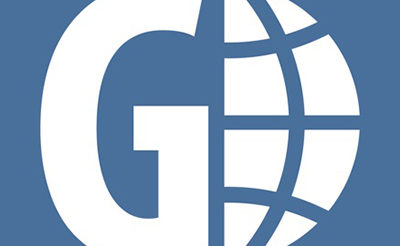This is how innovation is helping to make 100 million Egyptians healthier

In the Global Innovation Index 2019, the report from the World Intellectual Property Organization and its research partners Cornell University and INSEAD, authors from Egypt’s Ministry of Health and Population and the World Health Organization outlined how the initiative is a great example of how innovation can help revolutionize healthcare across the globe. This article is a summary of that chapter.
Egypt has the highest prevalence of hepatitis C virus (HCV) in the world, with an estimated 4.5 million patients in 2015, around 7% of the country’s population.
Meanwhile 84% of all deaths in the country are estimated to be related to non-communicable diseases (NCDs) such as diabetes and hypertension.
Despite this, the country’s Ministry of Health and Population did not have precise records for the incidence and prevalence of HCV and NCDs in the country, nor did they have information on how this compared to other countries in the region.
Source: WHO, Noncommunicable diseases country profiles 2018
To tackle this problem, the country’s government launched the 100 Million Healthy Lives initiative, which the goal of eliminating the hepatitis C virus in Egypt by 2030 through mass screening and treatment, in an initiative that ran from October 2018 to April 2019.
How it worked
Over seven months, screening teams consisting of 60,057 medical professionals and data entry staff worked in 5,716 screening sites, such as primary healthcare (PHC) units, government hospitals, mobile clinics, and youth centers. An incredible 49.8 million people were screened and tested for NCDs and HCV.
During the screening process, personal data was collected and processed to determine whether further tests for NCDs and/or HCV were required. Trained health professionals performed the medical tests and recorded the data. Negative results meant a file could be closed, whilst positive results led to a second phase of testing and treatment. All of the information collected was logged digitally in order to create rich patient profiles.
The success of this initiative was largely thanks to a software solution that, among other things, ensured a holistic approach to the screening, referral, and treatment process. Its enormous capacity allows access to 20,000 users at the same time, and captures 750,000 screening transactions per day and 47 screening transactions per second.
The system produces data on all layers, from the national level to villages and specific areas. It updates every 10 minutes and can provide instant reports on screenings across the country. The software also analysed the population by gender, showed the highest instances of disease by age group and is capable of identifying the peak time for screenings.
The power of data
Limited resources are usually the main challenge facing public health interventions. A data-based campaign, like the one used in the 100 Million Healthy Lives initiative, gives governments and organisations the ability to assess healthcare provision standards at the regional, district, city, and village level, and to place healthcare interventions in areas that need them most.
Meanwhile, the vast amount of data generated can be easily transformed into useful information for better decision-making. For example, data mining and analytics based on the most critical cases should lead to a health map matrix that can inform communication campaigns and treatment.
The health system in Egypt is fragmented due to unintegrated health services and complex vertical programmes. The only solution for fixing this issue is through connecting all the services and the institutions together to prohibit duplication of services, define the needed services, and ensure transparency.
Data mining and analytics are cost-effective approaches to mobilizing resources toward the most crucial health needs. Some countries in the African Union are now adopting the lessons learned and building on Egypt’s experience, and the WHO reported it would support the rollout of the initiative to a further 18 countries across the continent.
Based on the GII 2019 chapter by Hala Zaid, Aysam Salaheldein and Mostafa Monier Othman, Ministry of Health and Population, Egypt; Ahmed Sorour, Egypt Country Office, World Health Organization; and Mohamed Hassany, Ministry of Health and Population, Egypt.
